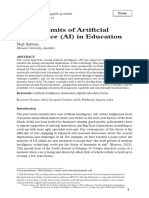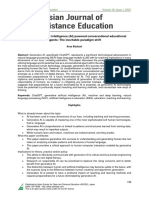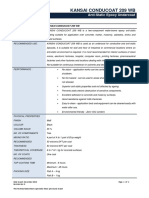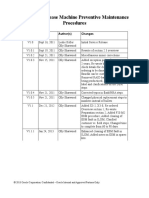Gen AI in Education: Transforming Classrooms and Rethinking Learning
By Dr. Emily C. Hartwell | EdTech Perspectives Journal, Vol. 14, No. 2 (2024)
In recent years, Generative AI (Gen AI) has become a transformative force in education,
reshaping how students learn, how educators teach, and how institutions assess progress.
From AI-generated personalized content to automated tutoring systems, the adoption of Gen AI
tools is accelerating. Yet, this transformation raises significant questions about equity, bias, and
pedagogical integrity.
What Is Gen AI and Why Now?
Generative AI refers to artificial intelligence models capable of producing new content, such as
text, images, code, or even music. In education, Gen AI is already being used to generate quiz
questions, explain complex concepts, and support differentiated instruction.
According to a recent survey conducted by the Global Institute for Digital Pedagogy (GIDP,
2024), 72% of secondary school educators in OECD countries reported using Gen AI tools
in some form. The same study suggested that student engagement increased by 38% in
classrooms where AI-generated simulations and personalized learning assistants were
introduced.
Opportunities for Learners
The ability of Gen AI to personalize instruction is among its most touted benefits. For example,
the AI-powered platform LearnMate AI, developed by the Advanced Education Technologies
Lab at Brighton University, has shown promise in tailoring content based on each student's
pace and preferences. A pilot study involving 250 high school students revealed that those
using LearnMate AI demonstrated a 19% increase in concept retention scores compared to
the control group (Arana & Wexler, 2023).
Moreover, language learners and students with learning disabilities have particularly benefited
from Gen AI’s multimodal support systems. Voice-based summarization tools, such as
EchoClass, provide auditory explanations and note condensation, supporting auditory learners
and students with dyslexia (Kwon, 2023).
Concerns and Challenges
Despite the promise, educators and researchers are urging caution. One major issue is the
propagation of bias in AI-generated content. A 2023 study by the Institute for Ethical AI in
Education (IEAIE) found that Gen AI tools reproduced gender stereotypes in more than
60% of role-assignment tasks in history and literature assessments (Davies & Chen, 2023).
Plagiarism and academic integrity have also come under scrutiny. With tools like EssayBotPro
and AutoThesisGen, students can produce coherent essays with minimal input. While this aids
those struggling with language barriers, it also complicates traditional models of assessment.
"We are in uncharted territory," says Prof. Henry J. McAdams of the Midwest Center for
Digital Literacy, who argues that the definition of authorship may need to be redefined in the
age of AI (McAdams, 2024).
�Preparing Educators for the Gen AI Era
To effectively integrate Gen AI into classrooms, professional development is key. The National
Association for Teacher Development recommends mandatory AI literacy workshops for pre-
service teachers by 2026. Their recent white paper, Teaching in Tandem with Machines,
outlines a four-tier model for teacher-AI collaboration (NATD, 2024).
Furthermore, universities are beginning to offer specialized courses in “Prompt Pedagogy,”
teaching future educators how to design effective prompts for AI-driven learning tools. The
University of Morningside’s School of Digital Pedagogy launched such a course this year
with an enrollment of over 500 students.
Conclusion
Gen AI is not a passing trend—it is a paradigm shift. As educational stakeholders grapple with
its implications, the need for ethical guidelines, robust validation methods, and AI literacy
becomes critical. While the potential of Gen AI to democratize learning is immense, its success
depends on thoughtful integration, continuous oversight, and a commitment to student-centered
pedagogy.
References
● Arana, J., & Wexler, T. (2023). Adaptive AI Platforms in Secondary Education. Brighton
University Press.
● Davies, M., & Chen, A. (2023). Bias in AI-Generated Educational Content. Institute for
Ethical AI in Education.
● GIDP. (2024). Annual Report on AI in OECD Classrooms. Global Institute for Digital
Pedagogy.
● Kwon, L. (2023). Multimodal Learning and Accessibility in the Age of AI. East Asia
Education Quarterly, 31(4), 55-68.
● McAdams, H. J. (2024). Redefining Authorship: AI and Academic Integrity. Midwest
Center for Digital Literacy.
● NATD. (2024). Teaching in Tandem with Machines: A White Paper. National Association
for Teacher Development.























































































